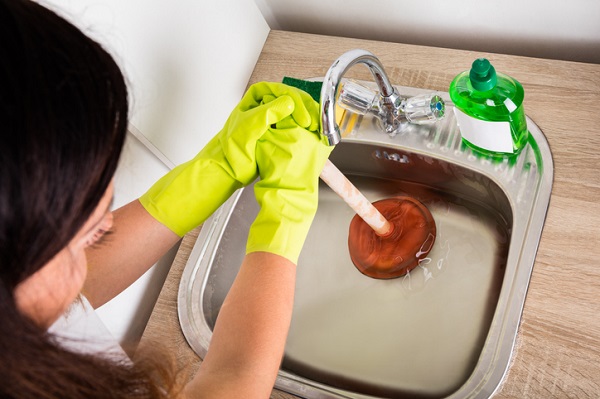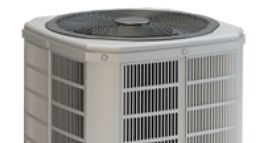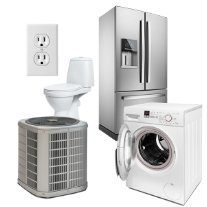Clogged drains can lead to a number of plumbing problems, and it’s certainly easier (and cheaper) to focus on prevention rather than maintenance. So, if you want to keep your home’s drains free and clear, here are three quick and easy tips you need to know.
Clean Your Drains Regularly
Regular cleanings go a long way in preventing clogs.
In your kitchen, focus on your garbage disposal: fill an ice cube tray halfway with vinegar, and then water. Freeze the tray and then pop a few ice cubes down the disposal for grinding. You can even add salt for a deeper clean that scrapes away grease and other dirt.
If you don’t have a garbage disposal, running hot water and vinegar down the drain is a great way to keep the pipes clean.
Your bathroom drains will also benefit from being cleaned. You can use a bent wire or a hair catching brush to clear out those pipes and prevent clogs, but table salt and vinegar are just as effective in these pipes. Pour one tablespoon (possibly more, if needed) of salt down the drain, and then dump ¼ cup of plain white vinegar down the drain. Let it sit for at least an hour, then run very hot water (but not boiling) down the drain to clear everything out.
Don’t Put These Down the Drain
Some items spell certain disaster for your home’s plumbing, and these are the biggest offenders:
- Coffee grounds
- Grease
- Hair
Never put these things down your drain. Pour grease (bacon grease, oil, butter, etc.) into a container for future reuse or trash disposal.
Toss coffee grounds in the trash or use them in your compost. Finally, use screens or drain-gates to keep hair out of your drains.
If grease does end up down your drain, there’s a remedy:
Fill a pot with hot, but not boiling, water. Add at least one tablespoon of liquid dish soap to your drain. Then, pour the water down the drain.
It’s important to avoid using boiling water. Pouring boiling water down drains, especially those with with PVC piping, could do damage.
And remember, these things shouldn’t go in your garbage disposal, either.
Hot Water is a Great Clog Preventative
This tip is probably the easiest to implement—simply run hot water down your drains after you use the kitchen sink. This will help clear out any leftover food debris, and will make future cleanings quicker and easier.
However, if your garbage disposal is the main concern, you’ll actually want to use cold water. That’s because cold water will keep any grease and oils in a solid state, meaning they can be disposed of when you turn the garbage disposal on. You can use hot water after you’ve run the disposal.
 Let 2-10 Help
Let 2-10 Help
In addition to these maintenance tips, 2-10 Home Buyers Warranty (2-10) can help you solve drain clogs caused by routine use. Plus, you can access coverage for other important home systems and appliances, along with 2-10’s trusted network of local, independent, vetted service technicians.




 Let 2-10 Help
Let 2-10 Help




